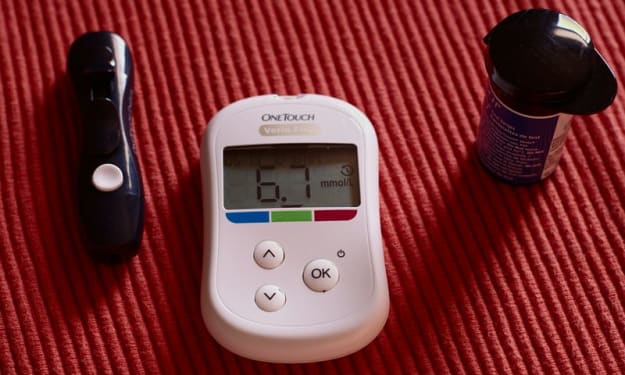Understanding Celiac Disease: Symptoms & Treatment
Living with a chronic health condition can really change your life.

Celiac disease is one such condition that makes eating hard for millions of people around the world. Finding out you have it and learning how to manage it can feel tough. But, with the right info and support, you can get your health back on track.
Key Takeaways
- Celiac disease is an autoimmune disorder caused by an immune reaction to gluten, a protein found in wheat, barley, and rye.
- Symptoms of celiac disease can vary widely, ranging from digestive issues to nutrient deficiencies and other health problems.
- Diagnosing celiac disease typically involves a combination of blood tests and endoscopic biopsy.
- The primary treatment for celiac disease is a strict gluten-free diet, which can help manage symptoms and prevent long-term complications.
Effective management of celiac disease can improve overall health and quality of life for those affected.
Celiac disease is an autoimmune disorder. It happens when the immune system reacts badly to gluten. Gluten is in wheat, rye, and barley. This reaction damages the small intestine and causes health problems.
Autoimmune Disorder Triggered by Gluten
People with celiac disease get sick when they eat gluten. Their immune system thinks gluten is a threat. This makes the small intestine inflamed and damages the villi.
The villi help absorb nutrients from food. Without them, the body can't get the nutrients it needs. This leads to many health issues.
Prevalence and Risk Factors
- About 1 in 100 people worldwide have celiac disease. It's a common autoimmune disorder.
- Some genes make people more likely to get celiac disease.
- If your family has celiac disease or other autoimmune disorders, you're more at risk.
- Celiac disease can start at any age. But it's most often found in people between 30 and 60.
Knowing what causes celiac disease helps us find it early and manage it better.
"Celiac disease is a serious autoimmune disorder. It happens in people who are more likely to get it. Eating gluten damages the small intestine."
Symptoms of Celiac Disease
Celiac disease is a complex autoimmune disorder. It can show in many ways, affecting health and well-being. Knowing the celiac disease symptoms helps with diagnosis and care.
One common symptom is intestinal inflammation. People may feel stomach pain, bloating, diarrhea, or constipation. This happens when the immune system reacts to gluten in wheat, barley, and rye. This can lead to not getting enough nutrients, causing fatigue, anemia, and losing weight without trying.
Celiac disease can also affect other parts of the body. People might have joint pain, skin rashes, headaches, brain fog, and feel sad. This shows why seeing a doctor is important if you notice these signs.
"Celiac disease can present with a wide variety of symptoms, making it a challenging condition to diagnose. A thorough evaluation by a healthcare professional is essential for identifying the underlying cause and developing an appropriate treatment plan."
Knowing the different celiac disease symptoms is key to getting the right diagnosis and treatment. By paying attention to both stomach and body signs, people can work with doctors to manage the condition and feel better.
Diagnosing Celiac Disease
To find out if someone has celiac disease, doctors use blood tests and a special test called an endoscopic biopsy. This helps doctors know if someone has the disease and how bad it is.
Blood Tests for Antibodies
The first thing doctors do is a blood test. They look for certain antibodies. These are called anti-tissue transglutaminase antibodies. If these levels are high, it means someone might have celiac disease.
Endoscopic Biopsy
If the blood test shows something might be wrong, doctors do an endoscopic biopsy. They take a tiny piece of tissue from the small intestine. This tissue is checked for damage. Damage like this means someone likely has celiac disease.
By using blood tests and an endoscopic biopsy together, doctors can really understand if someone has celiac disease. This careful check-up helps doctors make a good plan to help manage the disease.
Celiac Disease
Celiac disease is a serious condition. It happens when the body fights gluten, a protein in wheat, rye, and barley. This fight can hurt the small intestine and cause many problems if not treated.
This disease is not like a food allergy. It's an autoimmune condition. The body attacks its own healthy tissues. When people with celiac eat gluten, their immune system gets inflamed. This can make it hard for the body to absorb important nutrients.
Celiac disease is a gluten intolerance. But it's not the same as a food allergy. It's a lifelong condition. People with it must follow a gluten-free diet to stay healthy.
"Celiac disease is an autoimmune disorder that can have a devastating impact on an individual's health and quality of life. Understanding the nature of this condition is the first step toward effective management and treatment."
It's important to know the signs of celiac disease. Getting the right diagnosis and treatment is key. With a gluten-free diet and doctor's care, many people with celiac disease can live well.
Complications of Untreated Celiac Disease
Not managing celiac disease can lead to serious issues. Not eating gluten-free can cause not getting enough nutrients. It also raises the chance of getting other autoimmune diseases.
Malabsorption and Nutritional Deficiencies
Not treating celiac disease can hurt the small intestine. This makes it hard for the body to absorb important nutrients. This can lead to not having enough:
- Iron, leading to anemia
- Calcium, potentially causing osteoporosis
- Vitamins B12 and D, important for overall health
- Folate, crucial for cell growth and development
This can cause many problems, like feeling very tired, weak bones, and even brain and reproductive issues.
Risk of Other Autoimmune Disorders
People with untreated celiac disease might get other autoimmune diseases, such as:
- Type 1 diabetes
- Thyroid disorders (e.g., Hashimoto's thyroiditis)
- Rheumatoid arthritis
- Sjögren's syndrome
These diseases can make managing celiac disease and staying healthy harder. It's important to get diagnosed early and stick to a gluten-free diet to avoid these problems.
Gluten-Free Diet
For people with celiac disease, eating a gluten-free diet is key. This means no foods or products with gluten. Gluten is in wheat, barley, and rye. Sticking to a gluten-free diet helps manage symptoms and avoid serious health issues.
Eliminating Gluten Sources
First, find and avoid gluten sources in your food. This includes bread, pasta, and pastries. Also, watch out for sauces, dressings, and processed foods. Always check the ingredients for gluten-containing grains.
Reading Food Labels
- Know the names of gluten like wheat, barley, rye, and oats (except "gluten-free" ones).
- Look for the "gluten-free" label on foods. It means the product has less than 20 parts per million of gluten.
- Be careful with ingredients like malt, modified food starch, and natural flavors. They might have gluten.
By reading food labels well and avoiding gluten sources, you can manage your gluten-free diet. With practice, this diet can become easy, helping you stay healthy.
Managing Cross-Contamination
Living a gluten-free life means more than just avoiding gluten in your food. You also need to watch out for cross-contamination. This happens when gluten touches gluten-free foods. It's a big problem for those on a gluten-free lifestyle.
To keep cross-contamination away, follow these steps:
- Clean all cooking surfaces, utensils, and equipment well before making gluten-free meals.
- Use only gluten-free cookware and containers to keep things safe.
- Always check food labels for hidden gluten in sauces, seasonings, and processed foods.
- Tell restaurant staff about your diet and ask how they prevent cross-contamination.
By doing these things, you can greatly lower the chance of getting gluten by mistake. This way, you can live a safe, gluten-free lifestyle without worry.
"Keeping a gluten-free diet is not just about what you eat, but also how you prepare and handle your food. Cross-contamination is a real threat that requires diligence and attention to detail."
Living a gluten-free lifestyle is a journey. Handling cross-contamination is key to it. With the right steps, you can overcome challenges and enjoy the perks of a gluten-free life.
Celiac Disease in Children
Celiac disease is not just for grown-ups. It can also happen to kids. It's important to know the signs and how to test for it in kids. This helps kids get the right treatment fast.
Symptoms and Diagnosis in Kids
Kids with celiac disease might have tummy troubles like abdominal pain, bloating, diarrhea, and constipation. They might also feel very tired, have less energy, or grow slower than others. These signs can make it hard to spot the disease in kids.
To find out if a child has celiac disease, doctors use blood tests for special antibodies and a small intestine biopsy. If you think your child might have these symptoms, tell the doctor to test them.
"Early detection and treatment of celiac disease in children is crucial to prevent long-term complications and ensure proper growth and development."
Knowing the signs of celiac disease in children helps parents and doctors help the child. They can work together to manage the disease and keep the child healthy.
Living with Celiac Disease
Living with celiac disease means changing your life to avoid gluten. This change can be big, but it can also make you stronger. With the right help and ways to manage, it can be easier.
When you have celiac disease, eating out can be tricky. You need to tell your family, friends, and the people who work in restaurants about your diet. This way, you can eat safely and have fun.
Staying healthy is key when you have celiac disease. This means eating only gluten-free foods, handling stress, and moving around. Seeing your doctor often helps you keep track of your health and fix any problems.
Being part of a celiac disease group can really help. These groups offer support, advice, and friends who understand what you go through. They make living a gluten-free lifestyle easier.
"Living with celiac disease is a journey, but with the right mindset and support, it can be a rewarding one. Embrace the changes, advocate for your health, and never hesitate to seek the help you need."
Changing to a gluten-free lifestyle might take some work, but it's a chance to focus on your health. With hard work and a positive attitude, celiac disease can make you stronger and more resilient.
Emerging Treatments and Research
Researchers are looking into new ways to help people with celiac disease. They are studying things like enzyme supplements and new treatments. These could be new ways to manage the disease.
Enzyme supplements might help break down gluten in the body. Taking these with a gluten-free diet could protect against gluten accidents. Scientists are also looking into treatments that teach the body to accept gluten.
They want to know more about the gut microbiome in celiac disease. By learning about gut bacteria, they hope to find new ways to help people with celiac disease.
As research grows, we'll have more ways to treat celiac disease. These new treatments and better tests could make life easier for those with the disease.
"The field of celiac disease research is rapidly evolving, and we are excited to see the potential of new treatments that may provide additional options for patients." - Dr. Jane Doe, Celiac Disease Researcher
Conclusion
Celiac disease is a complex autoimmune disorder. It needs a deep understanding to manage well. By knowing the symptoms, getting the right diagnosis, and living gluten-free, people with celiac disease can control their health.
Managing celiac disease means reading food labels carefully. It also means being careful about cross-contamination. And, staying up-to-date with new research and treatments is key.
Thanks to growing awareness, more help and resources are coming for those with celiac disease. With the right mix of medical help, diet changes, and a strong spirit, people with celiac disease can beat the challenges. They can live happy lives.
This approach helps the celiac community spread the word, speak up for their needs, and encourage others to take care of their health.
FAQ
What is celiac disease?
Celiac disease is an autoimmune disorder. It happens when people eat gluten, a protein in wheat, rye, and barley. The immune system sees gluten as a threat and attacks the small intestine. This causes inflammation and damage.
What are the symptoms of celiac disease?
People with celiac disease may have many symptoms. These include stomach problems like pain, bloating, diarrhea, and constipation. They might also feel tired, have anemia, and lose weight without trying.
How is celiac disease diagnosed?
Doctors use blood tests to find specific antibodies in people with celiac disease. They also do a biopsy of the small intestine to check for damage.
What are the complications of untreated celiac disease?
If celiac disease is not treated, it can cause problems. People may not absorb important nutrients well. They might also get other autoimmune diseases.
How is celiac disease treated?
The main way to treat celiac disease is with a gluten-free diet. This means avoiding all foods and products with gluten. This helps reduce inflammation and heal the small intestine.
How can individuals with celiac disease manage cross-contamination?
To avoid cross-contamination, people with celiac disease must be careful. They should read food labels well, use separate kitchen tools, and be careful when eating out.
How does celiac disease affect children?
Celiac disease can also affect kids. Kids with this disease may show different symptoms than adults. Doctors need to do more tests to diagnose it in children.
What are some emerging treatments and research for celiac disease?
Researchers are looking into new treatments for celiac disease. They are studying enzyme supplements and immunotherapies. These could be new ways to help manage the disease.
About the Creator
Enjoyed the story? Support the Creator.
Subscribe for free to receive all their stories in your feed. You could also pledge your support or give them a one-off tip, letting them know you appreciate their work.





Comments
There are no comments for this story
Be the first to respond and start the conversation.